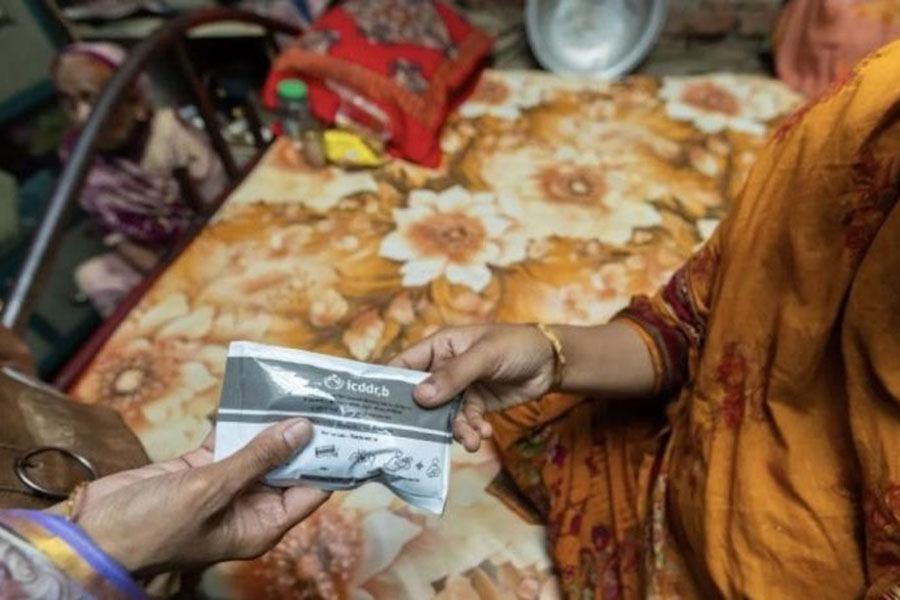
Published :
Updated :

A complementary food for undernourished children, developed jointly by icddr,b and Washington University, has been included in TIME's Best Inventions of 2025 under Social Impact category.
The gut-restoring complementary food has been developed through a long-standing collaboration between International Centre for Diarrhoeal Disease Research, Bangladesh (icddr,b) and Washington University in St. Louis, according to a statement of icddr,b on Friday.
Despite progress in the recent decades, undernutrition remains a major threat to child survival and development worldwide, contributing to nearly half of all under-five deaths. The global burden is being worsened by wars, displacement, and natural disasters, leaving millions of children at risk of stunting (low height-for-age) and wasting (low weight-for-height).
The icddr,b's innovation, called MDCF-2 (microbiome-directed complementary food), contains a precise mix of chickpea flour, soybean flour, peanut flour, and green banana. These ingredients were selected for their ability to nourish specific beneficial gut bacteria that support healthy growth, immune function, and neurodevelopment in children affected by malnutrition.
MDCF-2 was born from a collaboration between Dr Tahmeed Ahmed, Executive Director of icddr,b, and Dr Jeffrey Gordon, Director of Edison Family Center for Genome Sciences and Systems Biology at Washington University. The collaboration merged Dr Ahmed's decades of work addressing undernutrition in Bangladesh with Dr Gordon's pioneering research on human gut microbiome.
"Our decades-long research indicates that the gut microbiome plays a central role in how children grow and respond to nutrition," said Dr Gordon in the statement.
Well-controlled clinical trials of MDCF-2 in Bangladeshi children have shown its ability to repair children's microbiome. It has effects that extend well beyond the wall of the gut - revealing how the community of trillions of gut microbes profoundly impacts so many facets of human postnatal development, Dr Gordon added.
Dr Tahmeed Ahmed said, "This recognition by TIME is very encouraging. It shows how science and compassion can come together to address one of the most persistent global health challenges. MDCF-2 gives us new hope that locally developed, affordable solutions can help millions of undernourished children not only to survive but to thrive."
Major studies with this microbiome-directed therapeutic food are now underway in India, Pakistan, Mali, and Tanzania. The innovation has the potential to revolutionise nutrition interventions and help reshape how undernutrition is prevented and treated globally, said icddr,b.
nsrafsanju@gmail.com


 For all latest news, follow The Financial Express Google News channel.
For all latest news, follow The Financial Express Google News channel.